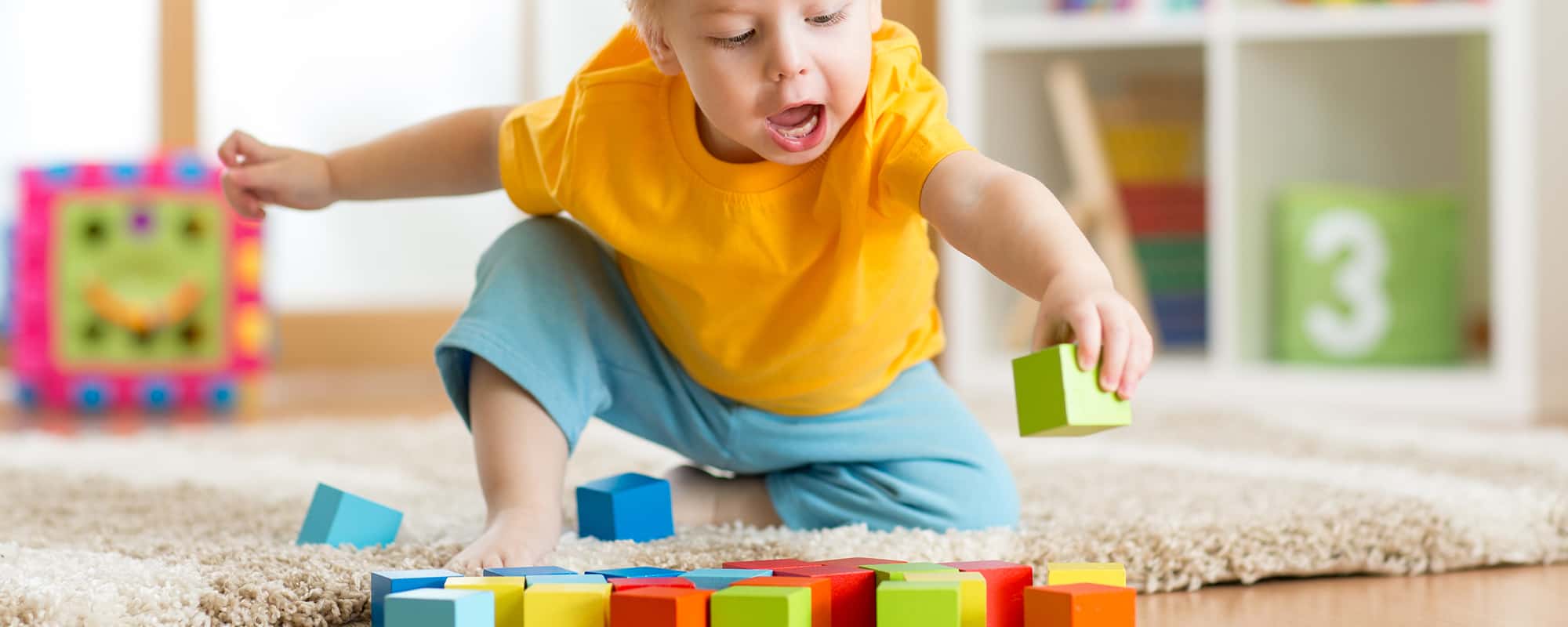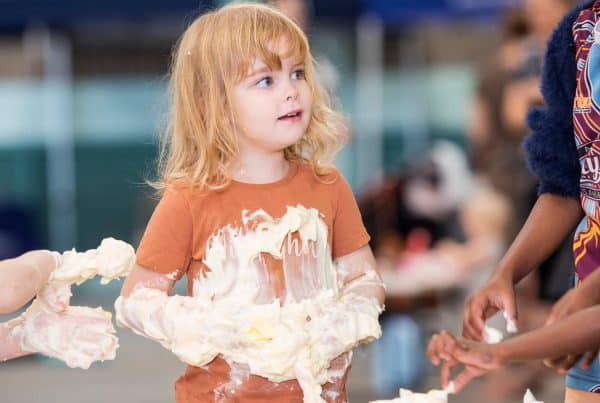As parents, we often don’t think too much about what is happening when our children are playing. So what is the importance of play in the early years and what are the types of play-based learning?
Play is incredibly important as it helps the development of motor, sensory, thinking and language skills. As children get older, play becomes more complex and helps with the development of problem-solving, social competence and emotional regulation.
Children under two years engage primarily in sensory-motor play which helps develop body awareness, coordination and sensory perception. As children get older, pretend play becomes more dominant which helps develop the higher-level thinking that underpins many academic skills; this is why play-based learning is so valuable.
Parents can help by providing opportunities for different types of play such as active movement, fine motor activities and imaginative play. Try to spend some time every day playing with your child; children love this special time with their parents and adults can provide more varied play than siblings.
Most people think of sensory play as ‘messy’ play or exploration of different textures but it is much more than that. Sensory play includes activities that involve touch, hearing, vision, smell and taste, as well as movement.
Sensory play promotes exploration of the environment and also helps build important connections in the brain. These help children to make sense of incoming sensory information. This is important for developing attention and self-regulation skills.
You will notice that many baby toys and books are colourful and have different textures or noises that can be elicited by exploration. For older children paint, sand, rice, slime and play dough are always popular. Musical instruments are great for all ages to explore and in addition to the sounds, involve different skills such as blowing, striking, shaking and pushing buttons.
Nature play is full of different smells, textures, colours and sounds that you can explore with your child. Children also love to play with food and participate in cooking experiences which allows exploration of multiple senses.
Fine motor skills are the activities we do with our hands such as writing, using scissors, opening packets, tying shoelaces or using a knife and fork. Dexterity and complexity of fine motor skills continue to increase up until about 7 years of age.
Activities that help develop fine motor skills include playing with blocks, threading beads, play dough, self feeding, using scissors and lots of painting and access to drawing materials.
If you have noticed that your preschool or school-aged child doesn’t know what hand they prefer, is not able to hold a pencil properly, can’t draw basic shapes or is not attempting to write their name then it is a good idea to see an Occupational Therapist to get a few pointers on how to help your child develop fine motor skills in readiness for Prep. A lot of kids with poor fine motor skills avoid the activities they need to do to develop their skills so it’s very important to get advice before starting school.
Here are five simple toys to encourage imaginative and active play in your child.
1. Maracas Djeco – RRP $9.99
2. Balance Bike Blue Chalkboard by Kinderfeets – RRP $150.00
3. Wooden Story Heart Teether – RRP $44.95
4. Forklift Truck by Goki – RRP $98.95
5. Quadrilla Cyclone Marble Run 198 Pieces – RRP $269.00





